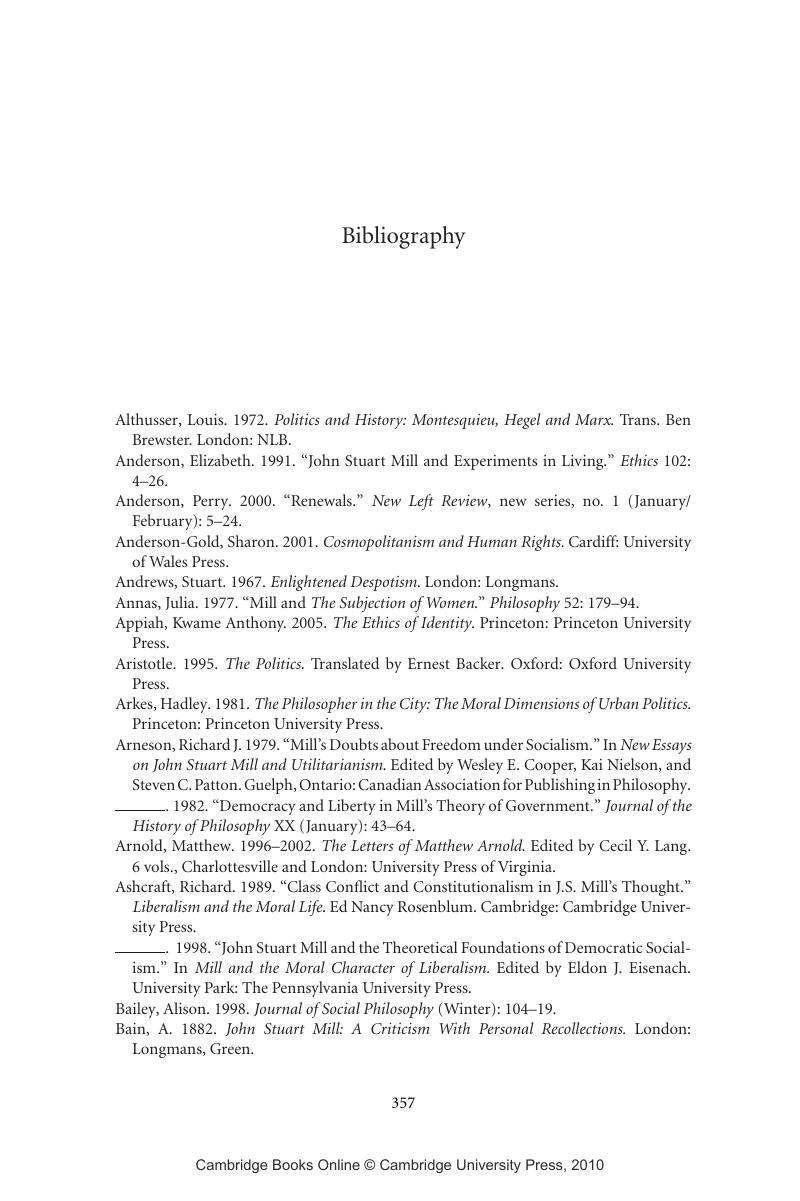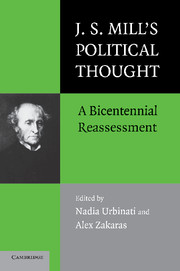Bibliography
Published online by Cambridge University Press: 08 January 2010
Summary

- Type
- Chapter
- Information
- J.S. Mill's Political ThoughtA Bicentennial Reassessment, pp. 357 - 374Publisher: Cambridge University PressPrint publication year: 2007



